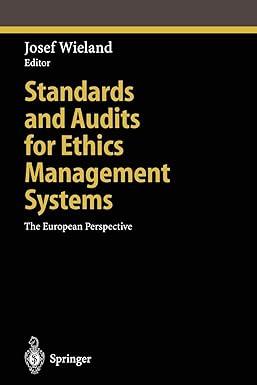Question
1- Cate owns the following property: A personal residence titled as sole ownership fee simple valued at $400,000. A $500,000 life insurance policy on her
1- Cate owns the following property:
A personal residence titled as sole ownership fee simple valued at $400,000.
A $500,000 life insurance policy on her own life. The named beneficiary is Cates brother James, who died 6 months ago leaving two children, Michael and Carol.
A car valued at $20,000 titled JTWROS with Cates mother.
An IRA valued at $200,000 with Cates mother as the named beneficiary.
What is the current value of Cates probate estate?
a. $400,000.
b. $900,000.
c. $920,000.
d. $1,320,000.
2- You are reviewing the group benefit plan statements of two married clients. You notice that they have designated each other as beneficiary of their respective group life insurance coverage. Their wills call for the establishment of a testamentary trust upon the first death. How should they proceed?
a. The group insurance proceeds are subject to probate.
b. Discuss whether there is adequate funding for the testamentary trusts.
c. Advise the purchase of additional personal life insurance coverage with a spousal beneficiary designation for both of them.
d. Suggest the establishment of an inter vivos trust.
3- Joe appointed his son, Mike, age 30, as his power of attorney for all property. Joe recently passed away leaving a sizable estate which includes a number of investment accounts, real estate and retirement plans. His will names his wife, Lisa, age 65, as his sole executrix and calls for an outright distribution to her. Lisa is unsure if she wants this responsibility. Which of the following options are available to Lisa?
a. Have Mike manage Joes property under the power of attorney.
b. Establish a testamentary spousal trust to hold the assets for her.
c. Hire professional advisors to help her to administer the estate.
d. Appoint Mike as the executor.
4- The estate of a person who dies without a will is distributed according to:
a. Federal law.
b. Oral instructions left by the person before their death.
c. State law.
d. Local ordinance.
5- Which of the following statements is false?
a. A person dying without a will is known to have died interstate.
b. Probate is open to public scrutiny.
c. An heir is a person receiving from a probate without a will.
d. A legatee nay be specific, realty or personalty or the universal legatee (takes the rest).
6- Which of the following items is includible in a persons probate estate?
a. Retirement assets with a named beneficiary.
b. A closely held business interest.
c. Lifetime transfers by gift made by the decedent.
d. Proceeds of life insurance owned by the deceased with a named beneficiary.
Step by Step Solution
There are 3 Steps involved in it
Step: 1

Get Instant Access to Expert-Tailored Solutions
See step-by-step solutions with expert insights and AI powered tools for academic success
Step: 2

Step: 3

Ace Your Homework with AI
Get the answers you need in no time with our AI-driven, step-by-step assistance
Get Started


